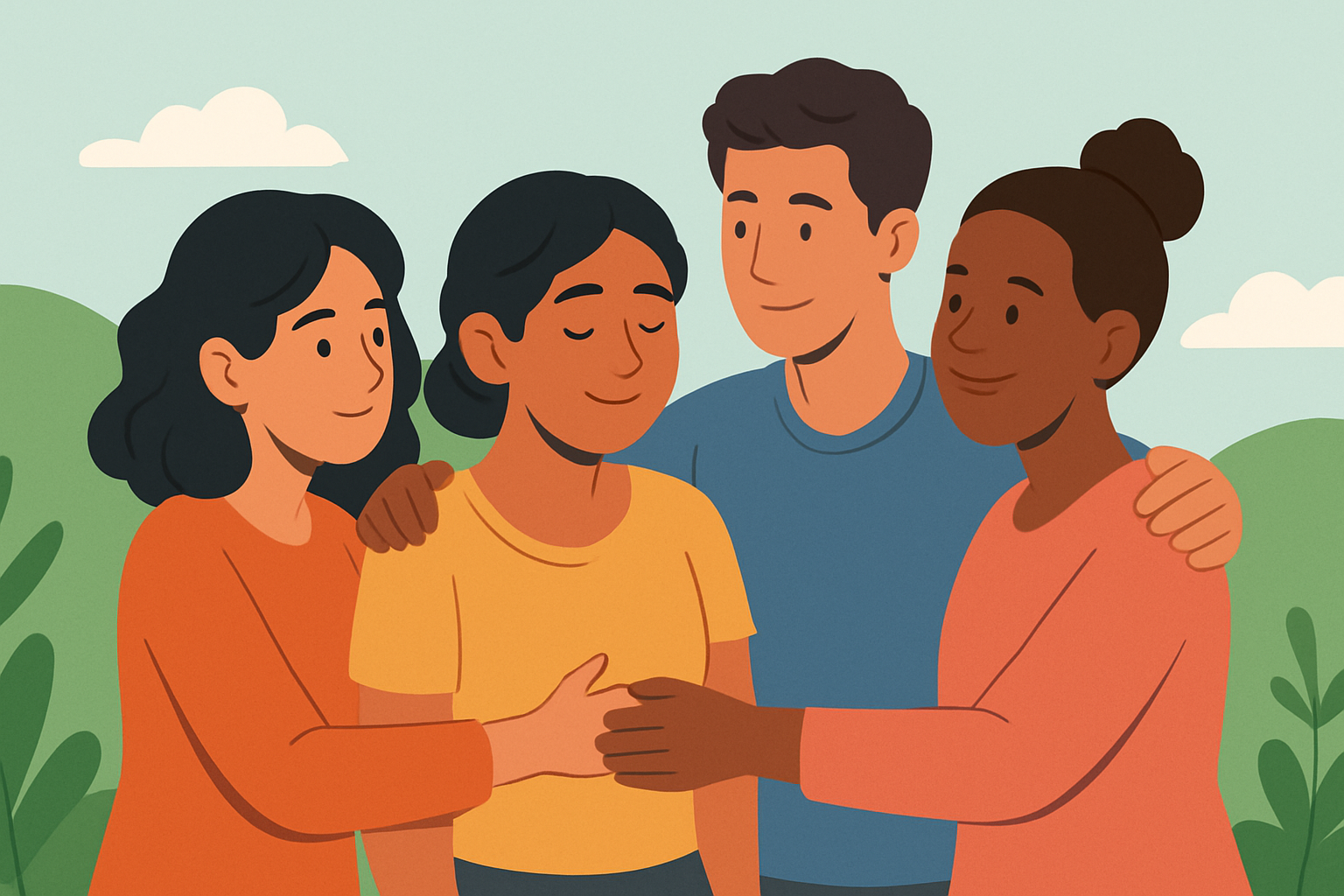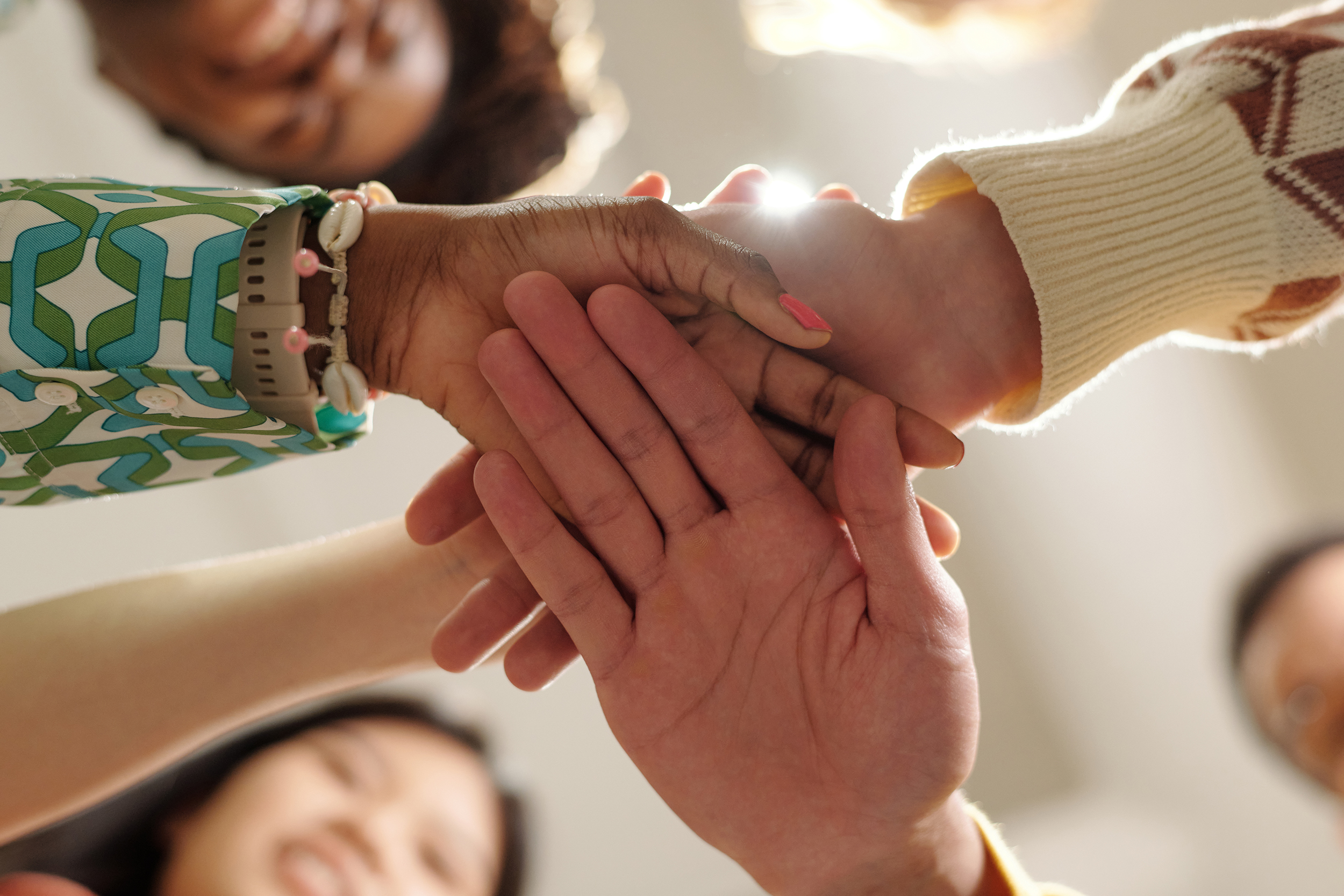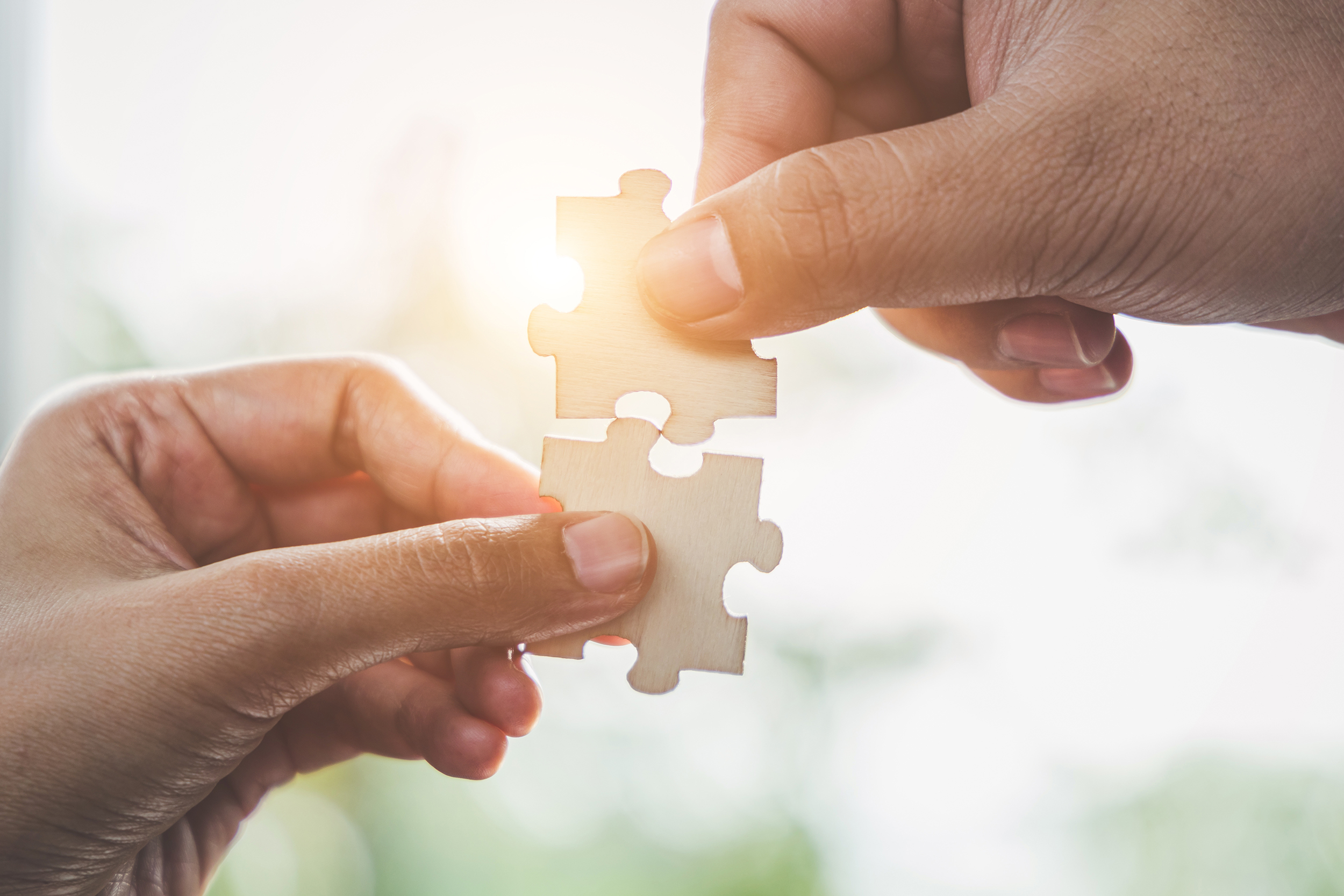
Idunnu Oke
January 15, 2026
•
10 min read

Are you struggling to maintain meaningful friendships that go beyond surface-level conversations?
Or perhaps you've noticed that despite being surrounded by people, you still feel emotionally unsupported when life gets challenging?
You're not alone in this experience. Research shows that about 70% of close friendships and 56% of social networks fade out after seven years. According to a 2024 study by the American Psychological Association, nearly 58% of young adults report feeling socially disconnected and emotionally unsupported, even within their existing communities.
In our hyperconnected digital age, building an authentic support network isn't just helpful—it's essential for mental health, longevity, and overall life satisfaction.
In this article, we'll explore how to build a support network, creating lasting friendships, the science behind social connections, and applicable ways to create lasting, meaningful connections.
As humans, we're fundamentally wired for connection. Neurobiological research from Harvard Medical School (2024) shows that social bonds activate the same reward pathways in our brains as food and shelter, confirming that connection isn't luxury—it's survival.
Social connection serves as more than emotional comfort; it's a biological necessity for optimal functioning. The attachment bonds we form in early childhood create neural pathways that influence how we connect throughout our adult lives. This is why understanding your attachment style can be crucial for building healthier relationships later in life.
According to the World Health Organization's 2024 Global Health Report, loneliness and social isolation now affect over 1 billion people worldwide. Dr. Vivek H. Murthy, a two-time US Surgeon General, emphasizes that loneliness has health risks equivalent to smoking 15 cigarettes per day. The psychological and physical benefits of strong social connections include:

Social connection can reduce mortality rates by up to 50%, according to a meta-analysis of 148 studies involving over 300,000 participants. Dr. Vivek H. Murthy, US Surgeon General, emphasizes that loneliness increases risk of heart disease by 29% and stroke by 32%. Conversely, strong social bonds boost immune function and accelerate recovery from illness.
Research from the University of Pennsylvania (2024) demonstrates that individuals with robust support networks show 40% lower rates of anxiety and depression. Quality relationships provide emotional regulation, reduce stress hormones like cortisol, and increase production of mood-boosting neurotransmitters like serotonin and oxytocin. Additionally, having a strong support system through friendships or a community helps reduce stress. Research proves that social support makes you more resilient.
Studies tracking participants over 20+ years reveal that socially connected individuals maintain sharper cognitive function and experience slower rates of cognitive decline as they age. Social engagement literally keeps our brains younger and more resilient.
Building an effective support network requires understanding that different people serve different roles in your life. Research identifies four critical types of support that create a well-rounded network:
Emotional support provides the foundation of psychological safety through understanding, empathy, and unconditional care. These are the people who listen without judgment when you need to process difficult emotions, offer comfort during challenging times, and celebrate your victories with genuine enthusiasm.
Example: A friend who sits with you during a difficult breakup, validates your feelings, and reminds you of your worth without trying to "fix" the situation.
These connections offer knowledge, advice, and guidance when you face decisions or challenges. They share resources, provide different perspectives, and help you navigate complex situations with their expertise or experience.
After receiving emotional relief via emotional support, informational support gives you practical steps by which you can solve a pressing challenge.
Also called tangible support, these relationships provide concrete assistance through actions and resources. This might include help with daily tasks, financial support during tough times, or assistance meeting important deadlines.
Example: A neighbor who watches your children during emergencies, or a friend who brings meals when you're recovering from surgery.

These connections bring lightness, fun, and positive energy to your life while boosting your self-esteem through encouragement and shared experiences. They help you maintain perspective and remember life's pleasures even during difficult periods.
Example: Friends who organize game nights, celebrate your achievements, and remind you of your strengths when self-doubt creeps in.
Quality trumps quantity when building meaningful connections. Research shows that most people can only maintain about 5-7 truly close relationships at any given time. Here's how to build yours strategically:
Before expanding your network, conduct an honest audit of your current relationships and support needs.
Ask yourself:
Tools like mood tracking apps can help you identify when you feel most supported versus isolated, revealing patterns in your social needs. For instance, you might notice you feel most lonely on Sunday evenings, indicating a need for more companionship support during transition times.
You can do this on Brightn by setting your intentions for the day first thing in the morning so that the app can be your partner all day.
Research from the University of Kansas shows it takes approximately 200 hours of interaction to develop a close friendship. Rather than starting from scratch, identify existing relationships with potential for deeper connection.
Look for people who:
Set up consistent connection rituals: Schedule monthly coffee dates, weekly check-in texts, or quarterly deeper conversations. Maximize these relationships by being emotionally supportive, practicing vulnerability, and listening actively.
Join communities where you can consistently show up as your authentic self. This might include:
The key is consistency—showing up regularly allows relationships to develop naturally over time.
Healthy relationships require a balance of giving and receiving. Research shows that relationships thrive when there's approximately 5 positive interactions for every 1 negative interaction.
Practice generous giving:
Practice graceful receiving:
Boundaries aren't walls—they're bridges that allow relationships to flourish long-term.
Set clear expectations about:
Create systems for relationship maintenance: Schedule regular check-ins, and stay consistent with your connections.
Even with strong networks, everyone experiences periods of loneliness or disconnection. Recent neuroscience research shows that loneliness activates the same pain centers in the brain as physical injury, explaining why social disconnection feels genuinely painful.

First, acknowledge that periodic loneliness is a normal human experience—it's your brain's way of signaling a need for connection. However, chronic loneliness lasting more than two weeks may indicate deeper issues requiring attention.
Reflect on potential causes:
Using mood tracking tools can help identify patterns in your loneliness, such as specific triggers, times of day, or situations that worsen feelings of isolation.
Brightn contains features that make it easy to identify factors tied to feelings of loneliness. You will be provided with a long list of options: work, family, relationships, food, and health, etc. Try it out here.
When feeling disconnected, our instinct is often to withdraw further. Research from UCLA shows that loneliness creates a defensive mindset that makes us hypersensitive to social rejection, creating a self-perpetuating cycle.
Combat this by:
Mental health professionals aren't separate from your support network—they're a crucial component. Therapists, counselors, and support group facilitators provide specialized emotional and informational support that friends and family cannot.
Consider professional help when:

Social connection is a learnable skill set that improves with practice. Research from Carnegie Mellon University shows that people who receive social skills training develop 23% stronger relationships and report 35% higher life satisfaction.
Key skills to develop include:
Remember: It's not about having hundreds of connections—it's about nurturing quality relationships that provide mutual support, growth, and joy.
Building a lasting support network is a marathon, not a sprint. Start with these immediate actions:
Mental health apps designed for relationship building can provide structure and accountability as you work toward stronger connections. Tools that help you track social interactions, set relationship goals, and receive gentle reminders to reach out can make the process more manageable and sustainable.
The Brightn app provides support beyond the surface when you feel isolated. It has a tracking tool that lets you track how you're faring daily and helps you combat feelings of loneliness for the long term.
Your support network is one of the most important investments you'll make in your lifetime. With intentional effort and the right strategies, you can build relationships that not only last but become a source of strength, joy, and resilience for years to come.
Are you ready to improve the quality of your support network? Download Brightn today!
